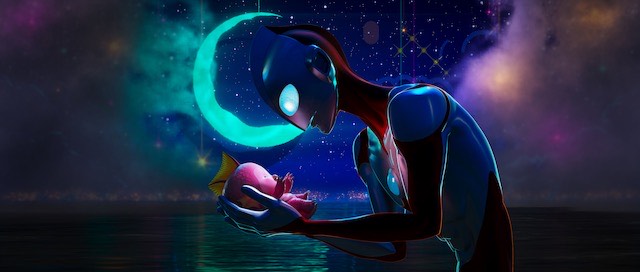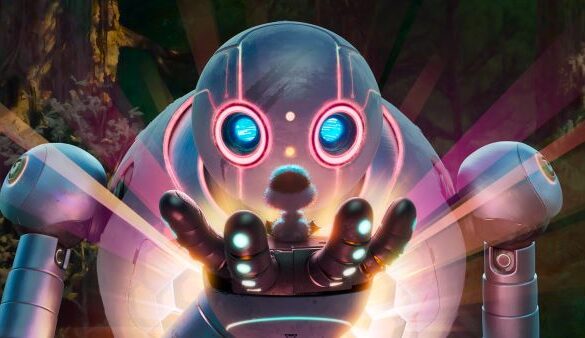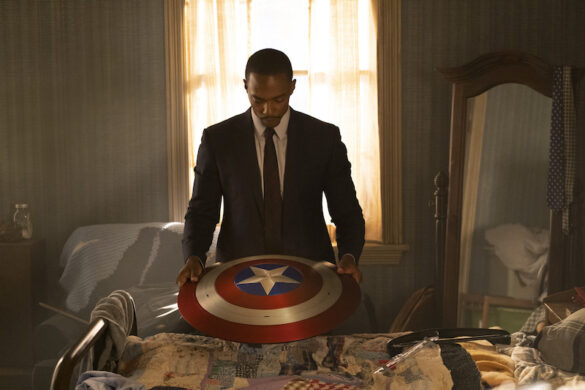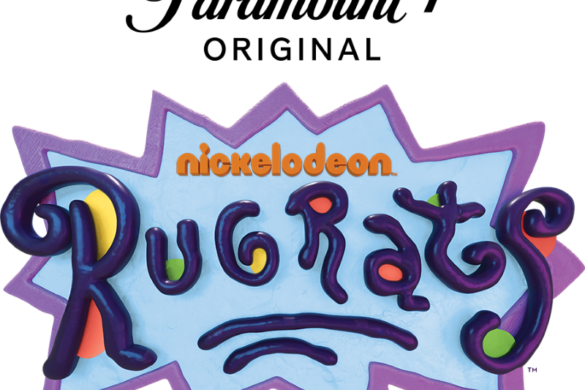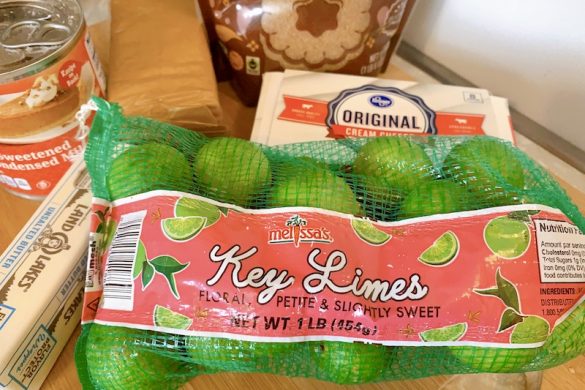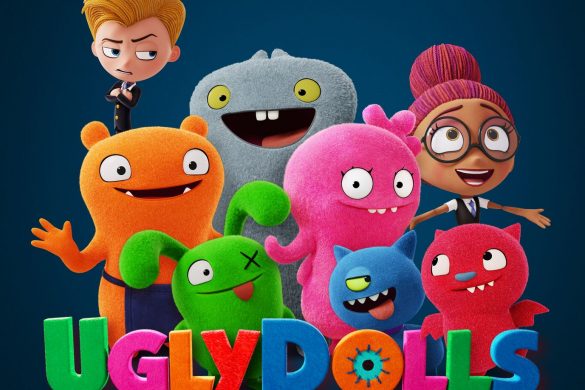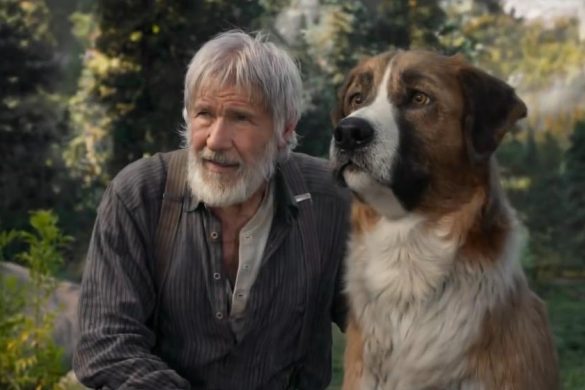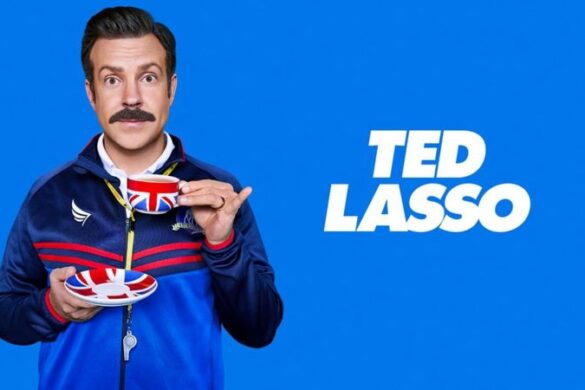The Ultraman legacy goes as far back as 1966. What started as a Toho Kaiju series that took inspiration from American television series like The Twilight Zone and The Outer Limits has evolved into a pop-culture phenomenon. Now, after the franchise has expanded into many television shows, films, comic books, and other media publications, Netflix is gearing up for “Ultraman Rising,” a brand-new iteration that reimagines the iconic big hero into being the father of a baby kaiju.
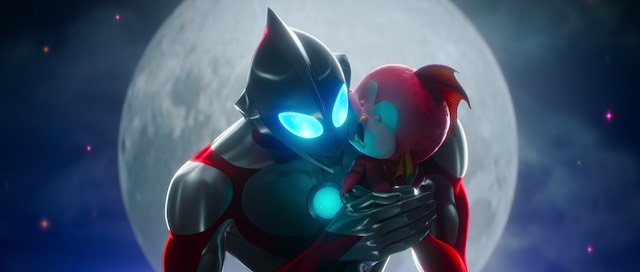
ThatsItLA had a chance to participate in a virtual roundtable interview to talk to director Shannon Tindle, whose credits include being a character designer on Cartoon Networks “Foster’s Home for Imaginary Friends,” a co-writer for “Kubo and the Two Strings” and creator of Netflix’s “Lost Ollie.” Tindle, along with co-director John Aoshima (“Kubo and the Two String,” “Gravity Falls”), spoke about paying tribute to Ultraman while trying to do something new to keep the hero’s legacy fresh. Considering the film is a Japanese-American co-production between Netflix Animation and Tsuburaya Productions, the two also addressed the importance of representation.
We also got to talk to Japanese-American actors Christopher Sean, Gedde Watanabe, and Tamlyn Tomita about being a part of the cast and what it was like to represent themselves authentically in a film that celebrates an iconic Japanese superhero.
When it came to a film like a beautiful film like “Kubo and the Two Strings,” it was surrounded by a whitewashing controversy. Though the stop-motion animated feature used Japanese mythology as the basis for its story, its principal cast was voiced by non-Japanese. As such, it felt inauthentic. However, Tindle was conscious of meaningful representation for “Ultraman Rising” and fought for it for “Kubo and the Two Strings”. “I was conscious of it on a Kubo [and the Two Strings] as well, John [Aoshima] was with me on that film. And I actually suggested at the beginning that we do the film in Japanese,” Tindle said. “Hey, it’s Laika, let’s do something really bold. On that end, you know, because they’re a smaller studio. They like they wanted to get a bigger cast. And we had an incredible cast for that film. But when it came time to do this film, and we had the opportunity to cast approach appropriately and thoughtfully, and Netflix fully supported it, then we took every opportunity to do that.”
Christopher Sean, who voices baseball superstar and the current Ultraman, said he was blown away by Tindle’s script and was moved by it after reading it. In fact, he cried three times. That emotional connection brought him closer to the character. And to do that, he pulled from past experiences and his research on the Ultraman. “I’d started studying Japanese and the different iterations of Ultraman and the kaiju,” he said. “It’s really easy for me to play an amazing character that is Ultraman when you have amazing parents like Tamlyn [Tomita] and Gedde [Watanabe], who are there to support you and guide you and with all the legacy that they have as Japanese American pillars of the communities actors.”
“I am lucky to have pioneers in Hollywood, again as Tamlyn and Getty, who have created the role model aspect for people like me to see on camera and say, ‘Hey, maybe I can pursue a career as luxurious as what they’ve created in their lives,'” Sean added.
Sean couldn’t believe how the “Ultraman Rising” script captured the mixed-Asian experience while confronting cultural prejudices and how much of that related to his growing up. “Growing up, my mom would make onigiri or have a bento box, and I’d go to school, and I’d be so excited. Like, ‘Dude, check out my rice ball. It’s so good. It’s tuna rice ball,'” Sean recalled. “My friends would be like, ‘Ew, dude, I’m eating PB and J.’ I’d be so embarrassed that the next day had come to school, and I’d be like, ‘Hey, you want to trade like I really want that PB and J.’ I trade out my meals that I really wanted because I wanted to fit in. want it so badly to fit in.”
“So I can relate to Ultraman and Ken and his story of how he didn’t really fit in either culture. He was alienated,” Sean said. “So yeah, it’s again, it was just like, there’s so much in my life that intertwined with Ken Sato that I didn’t feel like I had to pull from much.”
Ultimately, “Ultraman Rising” explores the complicated relationship between parent and child through the superhero lens. The cast wants to make sure that the kids who are watching understand that parents are doing the best that they can under the circumstances they are given. “I think that’s the bottom line is that no matter what circumstances, what situation, what problems any family has is that every parent tries to do the best he or she can in order to provide the best for their child,” Tomita said.
“I’ll say parents are people too. As a little kid, you don’t realize that your parents were also kids who were also learning,” Sean added. “We’re trying our best to be your friend and guide you, be a parent, and walk that fine line of being a friend and a parent. So he’s trying to be a good dad and a good son. These intergenerational relationships are very complicated, but they’re done so well in this movie.”
“Ultraman Rising” also captures the Japanese culture by namedropping baseball legends, switching between English and Japanese, and presenting beautifully animated Japanese dishes. One of those dishes is curry. The cast and directors had much to say when asked about making curry. “We all know how to make curry. Every Japanese American knows how to make curry,” Tomita said. Tindle said that production designer Makiko Wakita puts apple to give her curry a depth of flavor.
In addition to researching the many iterations of “Ultraman,” “Ultraseven,” and “Return of Ultraman,” Sean also studied Japanese for two years. The actor mentioned that he was fluent in Japanese as a kid but had lost it because he didn’t use it.
Sean’s journey to voice Sato and Ultraman may have taken two years. Still, Tindle’s efforts to bring Ultraman Rising to the screen took even longer. 23 years, to be exact. “I had the idea back in 2001. I had the idea for this and Kubo at the same time. And in Hollywood, you know, you never know. I pitched a Cartoon Network. I pitched it to Disney, I pitched at DreamWorks, and it sometimes comes down to timing,” Tindle said.
According to Tindle, Sony was the first studio to like the pitch. They even had a release date set up. However, a last-minute change of course and licensing rights disputes prevented “Ultraman Rising” from ever hitting theaters. The director saw those setbacks as a blessing in disguise, as “it allowed for the story to mature.”
Tindle adds if he had made the film before, it still could have been a great film, “but it wouldn’t have used Ultraman because Ultraman was in the middle of a lot of legal battles.” After the licensing rights dispute on Ultraman was resolved in 2018, he pitched the same original story to Netflix, who liked what he had to offer. Though the original story didn’t have Ultraman then, Tindle believes it still would have been a great film. Flash forward a few years later, that original story pitched to various studios for the past 23 years before landing at Netflix would become “Ultraman Rising.”
“Ultraman Rising” debuts exclusively on Netflix on June 14, 2024.

